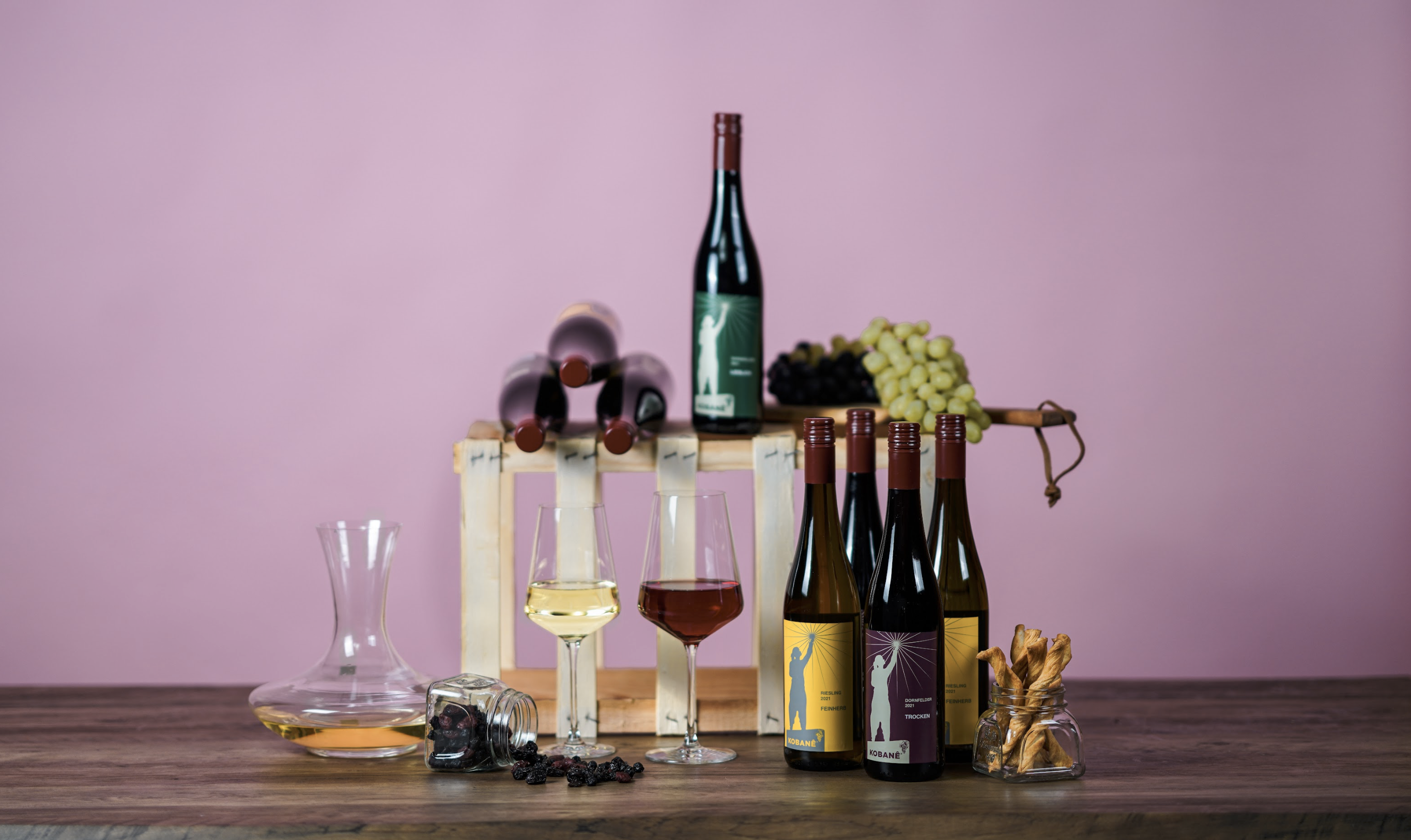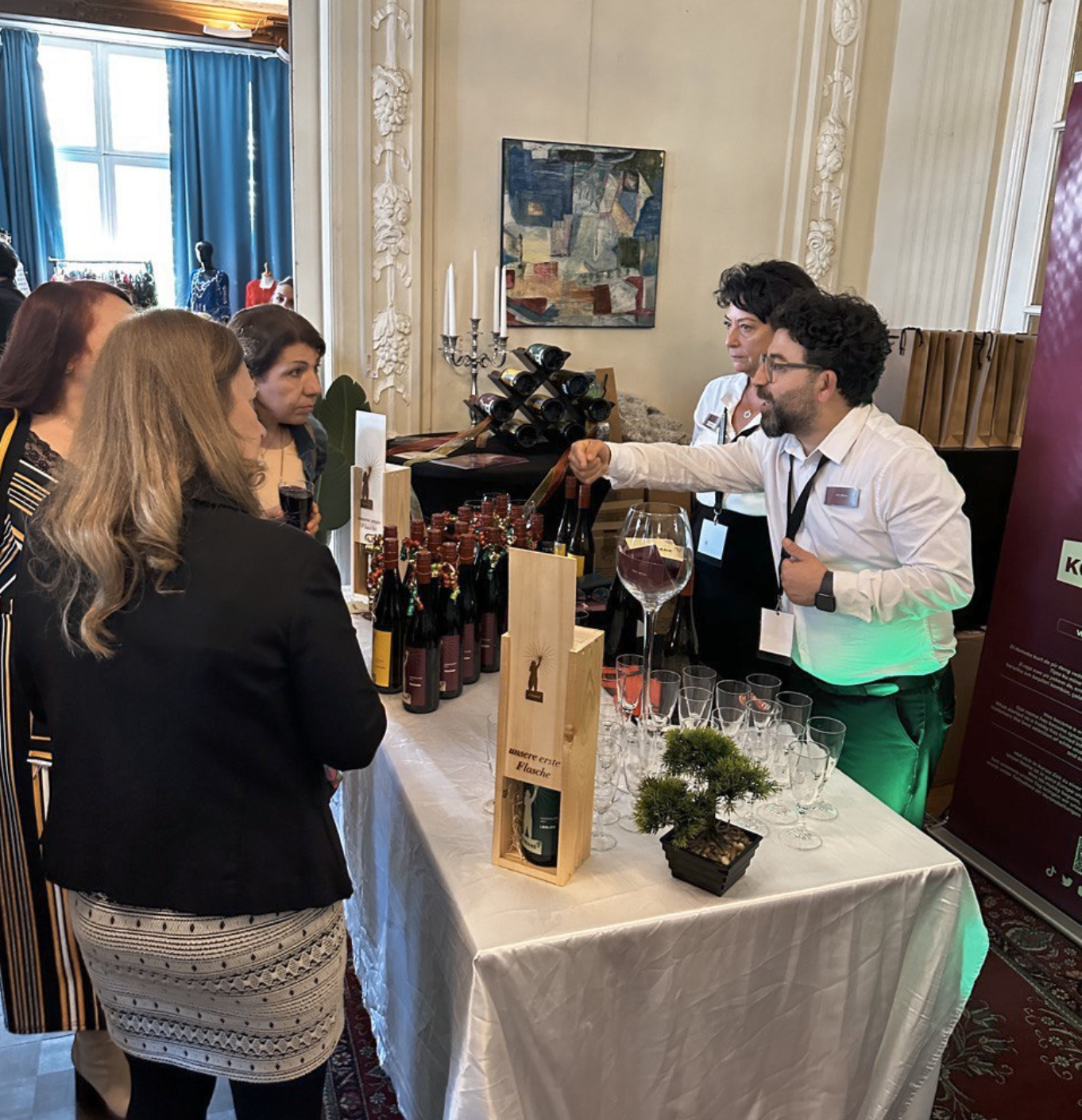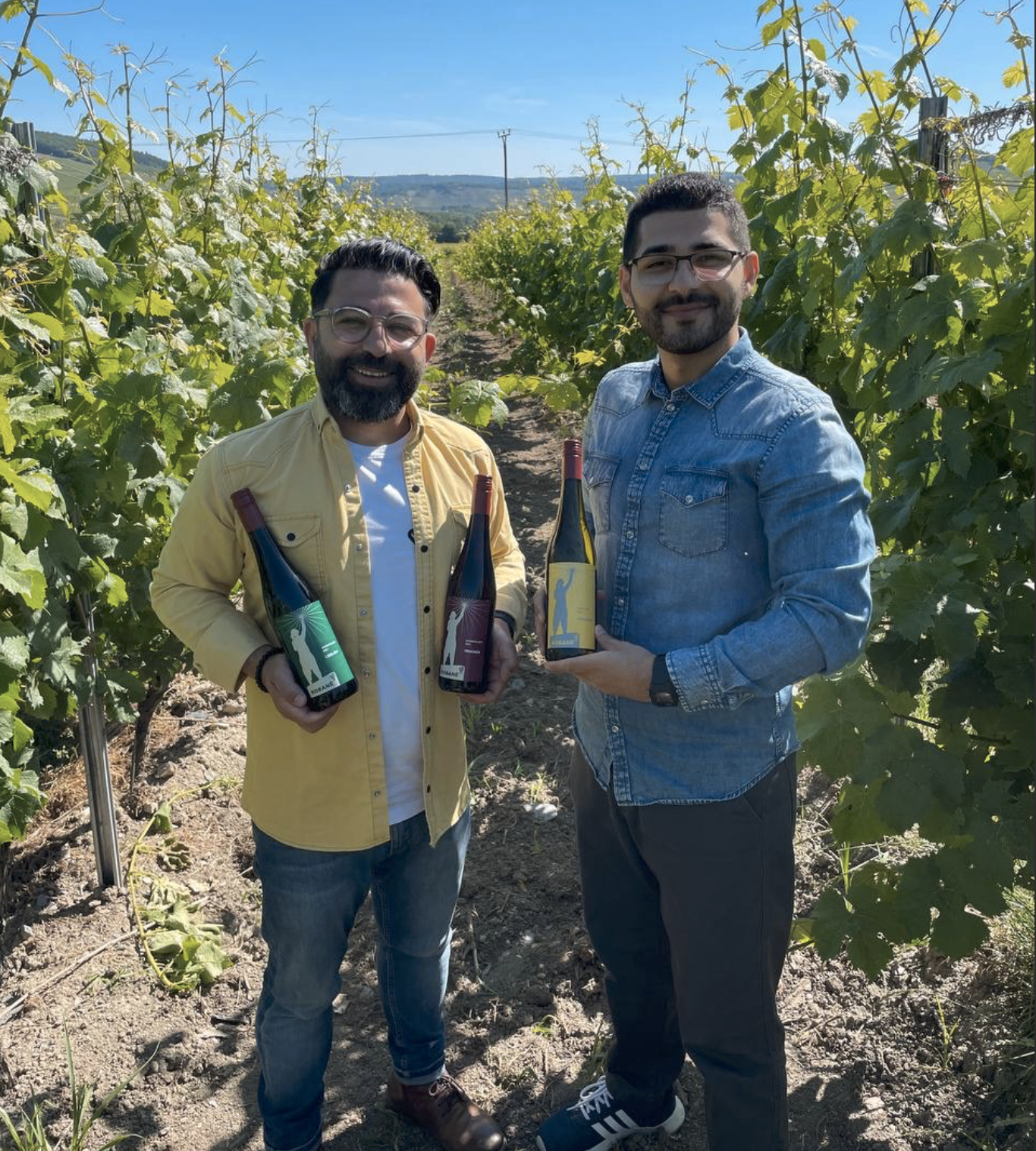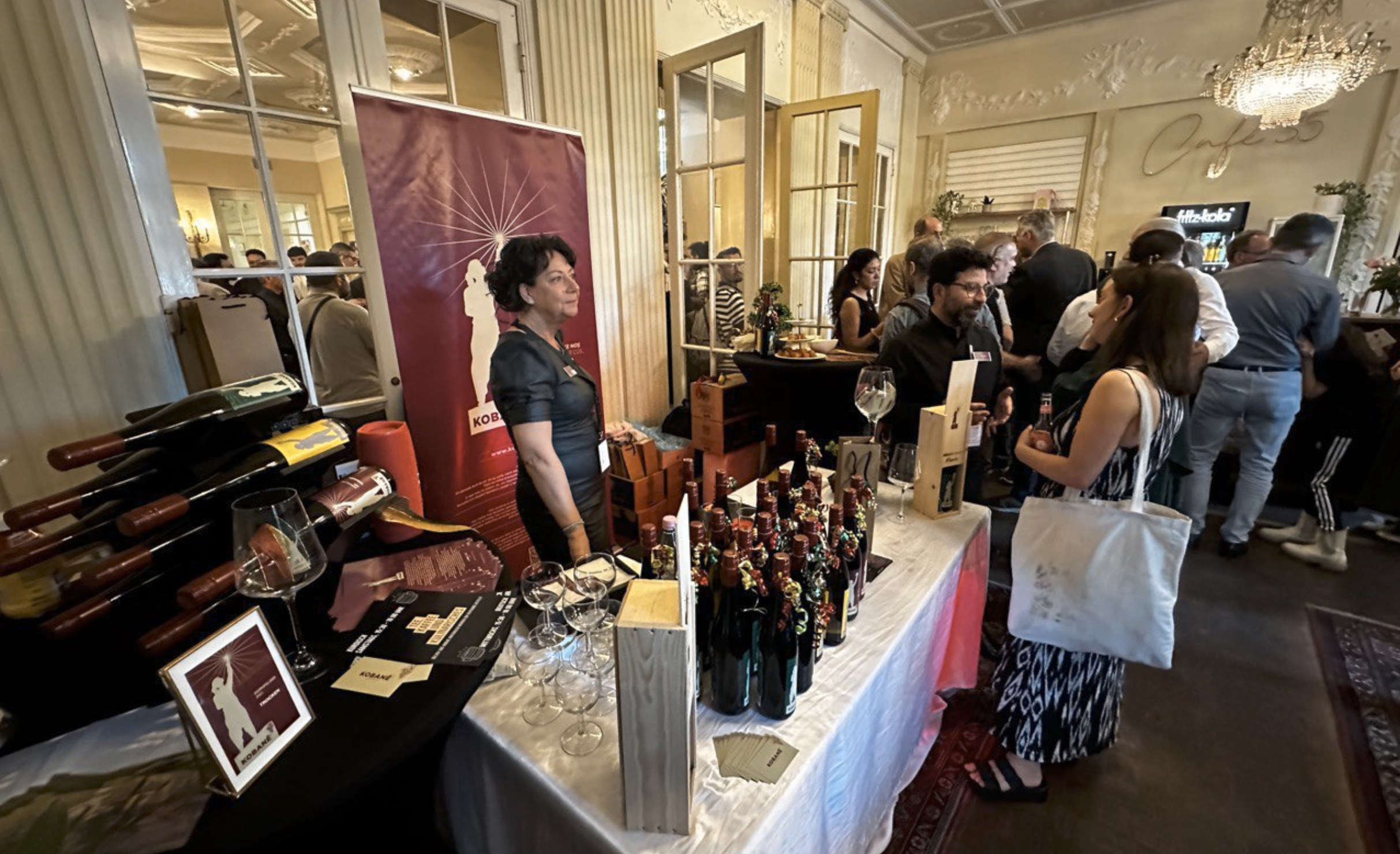One of the more mysterious elements of Kurdish culture to foreigners is how alcohol consumption is permitted in a largely Muslim society and how locals view the practice. This nuanced relationship dates back hundreds of years.
In the book Kurdish Customs and Traditions by the 19th-century Kurdish sociologist Mela Mahmud Bazidi (1779-1863), the author discusses Kurdish drinking culture. Bazidi notes that it was not a Kurdish custom to consume wine. However, due to interactions between young Kurds and Turks, wine consumption started to become more common.
According to Bazidi, some young Kurds adopted this custom to bridge the cultural gap with Turks. It is worth noting that this practice was still relatively rare and not widespread. Bazidi’s research found that only one in 1,000 young people in Kurdistan consumed alcohol. Interestingly, he described how this figure used to be even lower, and that even the Christian community in Kurdistan displayed low levels of alcohol consumption.
These insights shed light on an interesting aspect of the late 19th century, when wine drinking gradually made its way into Kurdish society. Bazidi’s analysis contextualizes this phenomenon, suggesting that lower-status societies often admire dominant cultures and aspire to emulate them.

Insights from a Kurdish wine maker in Germany
On several occasions while attending film festivals in Germany, my attention was drawn to a young Kurdish man who stood at a booth offering wine to festivalgoers. Heval Akil, the visionary behind the Kobanê wine-making project, works along with a German woman named Conny, the sales manager, to promote this unique product at Kurdish cultural events. The last time I encountered him was at the fourth Kobani Film Festival in Bochum. It left me pondering the situation – how could a Kurdish individual, within the framework of their Muslim identity, engage in such an endeavor?
Motivated by curiosity, I struck up a conversation with Akil. I asked him, “Why dive into the unusual world of wine selling, especially when it’s practically unheard of among Kurds?”
With confidence, he replied: “You see, our culture is quite renowned worldwide, and people are familiar with it here in Germany. Our bottles make wonderful gifts, and Kurds living in Europe have a deep appreciation for what we offer. So, why not introduce a product like this to the market?”
His response intrigued me, so I asked him more questions, which eventually morphed into an agreement to carry on our exchange in writing. Thus, a casual conversation turned into an interview and together we set out to unravel the origins, methods, and motivations behind this unique project.

Mey Dost (MD): Why did you choose the name Kobanê?
Heval Akil (HA): Every nation has a right to take pride in its cities. As a Kurdish nation, let us cherish the legendary honor and the remarkable victory in Kobane by the Kurdish freedom fighters. We hold our heads high, filled with pride for the triumph of the Kurds in Kobane.
MD: Did you consider Muslim Kurds and their criticisms when founding your brand?
HA: We know that Kurdish society is a faithful society and also a colorful one, Kurds believe in many religions, but there are also Kurds who do not believe in any religion. When it comes to Kurds in Europe, they have more freedom to live life in their way, without the weight of societal or religious pressures holding them back from enjoying our unique beverage. That’s why our product is available to everyone, and we fully respect the choices of those who decide not to partake, no matter their reasons.
MD: Where can I find your wine on the market?
HA: Our wine reaches the market through various channels, primarily at festivals, nighttime entertainment venues, and cultural events. We eagerly accept invitations from event organizers who wish to support our product, even if it means overcoming our fatigue. We support every Kurdish product and talent, and we at Kobanê Wine have organized activities like design and art exhibitions, creating a space for aspiring Kurdish youth to showcase their talents. Our goal is to foster unwavering support within our community.

MD: How do you produce your wine? Where do you get the grapes from?
HA: We craft our wine using a blend of two exquisite grape varieties: the renowned Riesling and the robust Dornfelder grapes sourced from the picturesque vineyards nestled along the scenic banks of the Moselle River in southern Germany. Our winemaking process begins at the factory, where these grapes are meticulously pressed, expertly bottled, and thoughtfully labeled. Once prepared, our wine embarks on a journey via truck, making its way to our network of 21 restaurants, bars, and stores scattered throughout Germany. In the same way, our website serves as a platform through which customers can place their orders. We’ve established a comprehensive online store where we catalog and share all our expertise and product offerings.
MD: Is your target market primarily within Germany, catering to German residents?
HA: Certainly not. While we operate extensively in Germany, we ship our products across all of Europe upon request. And, given the opportunity, we aspire to expand our distribution to the Kurdistan Region of Iraq as well.

MD: Your wine carries a Kurdish name, yet it’s made from grapes sourced outside of Kurdistan. Have you ever considered using Kurdish grapes as the foundation of your product? Regions like Mardin, Behdinan, and other areas in Kurdistan boast some of the world’s finest grapevines.
HA: Of course, we’ve been contemplating diversifying our grape sources beyond Dornfelder and Riesling. To that end, we’ve initiated a project to cultivate fruit trees in our village of Baxçe in Western Kurdistan (North-East Syria) , located to the south of Qamishlo. This endeavor is undoubtedly a lengthy undertaking, mainly due to equipment limitations, but it’s our foremost aspiration. Our aim is to proudly label our product as “Made in Kurdistan.” We’re also exploring a similar venture in the southern part of Kurdistan, and details will become clearer in the future.
MD: Do you not have concerns about competition with other companies in the same industry?
HA: No, we embrace competition with confidence. We are committed to quality and take pride in the fact that everyone who tries our product finds it enjoyable. Positive feedback consistently fuels our drive to improve and expand. Additionally, the vibrant colors of our product, mirroring the Kurdish flag in green, red, and yellow, resonate deeply within the hearts of Kurds, evoking a sense of joy and connection.
Mey Dost is currently pursuing a master’s degree in Digital Media Communication at RWTH University in Germany.

